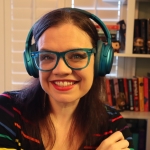Ronald M. Baecker
Chair of the Board
Ron Baecker is Emeritus Professor of Computer Science, co-founder of the Dynamic Graphics Project, and Founder and Emeritus Director of the Knowledge Media Design Institute (KMDI) and the Technologies for Aging Gracefully lab (TAGlab) at the University of Toronto. He has been named one of the 60 Pioneers of Computer Graphics, has been elected to the ACM CHI (Computers and Human Interaction) Academy, has been named an ACM Fellow and a Canadian Digital Media Pioneer, and recently receiving a CHI Social Impact Award. He is the author of 6 books, including Computers and Society: Modern Perspectives (OUP, 2019), The COVID-19 Solutions Guide (2020), and Founding Editor of the Synthesis Lectures on Assistive, Rehabilitative, and Health-preserving Technologies (Morgan & Claypool). His next book is entitled Digital Dreams Have Become Nightmares: What We Must Do (2021). He taught his first Computers and Society course in 1972.
Ishtiaque Ahmed
Board member
Syed Ishtiaque Ahmed is an Assistant Professor of Computer Science at the University of Toronto. He directs the ‘Third Space” research group, which studies the intersection between Human-Computer Interaction (HCI) and Information and Communication Technology and Development (ICTD). His research focuses on the design challenges around ‘voice’, which he defines through access, autonomy, and accountability. Most of his work is situated in the Indian subcontinent, where he conducted ethnography and design studies with many underprivileged communities including readymade garments factory workers, evicted slum dwellers, rickshaw drivers, mobile phone repairers, and victims of sexual harassment. His current work has expanded from there, and is also addressing pressing concerns of marginalization in Iran, Iraq, Turkey, China, Canada, and the US.
Casey Fiesler
Board member
Casey Fiesler is an Assistant Professor in the Departments of Information Science and (by courtesy) Computer Science at the University of Colorado Boulder. Her research focuses on online communities, governance, and ethics, with areas of focus including big data research ethics, ethics education, ethical speculation in technology design, technology empowerment for marginalized communities, and broadening participation in computing. She is the recipient of an NSF CAREER award for her work on technology ethics and holds a law degree from Vanderbilt University and a PhD in Human-Centered Computing from Georgia Tech.
Brett Frischmann
Board member
Brett Frischmann is the Charles Widger Endowed University Professor in Law, Business and Economics at Villanova University. A renowned scholar in intellectual property and Internet law, he is an affiliated scholar of the Center for Internet and Society at Stanford Law School, an affiliated faculty member of the Vincent and Elinor Ostrom Workshop in Political Theory and Policy Analysis at Indiana University, and a trustee for the Nexa Center for Internet & Society, Politecnico di Torino. His latest book, co-authored with philosopher Evan Selinger, Re-Engineering Humanity (Cambridge University Press), examines techno-social engineering of humans, various ‘creep’ phenomena and modern techno-driven Taylorism. In addition, he has written a number of online articles on the intersection of technology and humanity for Scientific American.
Uma Kalkar
Board member
Uma Kalkar is obsessed with finding policy solutions to wicked problems. Focused on the intersection of public policy and the social implications of technology, She is the 2019-2020 David M. Abshire Award Winner for “Most Outstanding Paper by an International Fellow” at the Center for the Study of the Presidency and Congress in Washington, DC. She serves as the Innovation Director of 18by.vote, a US-based 501(c)(3) that aims to help 16, 17, and 18-year-olds understand how to vote, when to vote, and why to vote. In the lead up to the 2020 election, she co-designed a “Civic Engagement Fellowship” to reach young voters from rural areas, communities of color, and/or zones disproportionately affected by the COVID-19 pandemic to support digital and traditional voter outreach through a peer-to-peer model. Uma holds an Honors Bachelors of Science (High Distinction) majoring in Peace, Conflict, and Justice and double minoring in Mathematics and Biology from the University of Toronto (’20). She is currently a dual-degree candidate for a Master of Public Policy specializing in Digital, New Technology and Public Policy at the Paris Institute for Political Studies (Sciences Po) and a Master of Global Affairs specializing in Innovation Policy at the University of Toronto.
Nicholas Logler
Board member
Nicholas Logler is a PhD Candidate in the Information School at the University of Washington. He is a research assistant in the Value Sensitive Design Lab and the Tech Policy Lab. His research explores our relationship with the physical materials which compose everyday technologies. Specifically, how we understand what is (and can be) a material; how design shapes our understanding of material systems; and how investigating materials creates opportunities to explore our conceptions of justice, flourishing, and living well in material worlds. Prior to joining the University of Washington, Nick co-founded the non-profit FabNewport, focused on teaching young people digital fabrication, programming, and design.
C. Dianne Martin
Board member
Dr. C. Dianne Martin is a retired Professor Emeritus of Computer Science from the George Washington University School of Engineering and Applied Science. Dr. Martin served as Chair of the ACM Special Interest Group on Computers and Society (SIGCAS), and led a national task force to develop the standards for teaching ethics in computer science. She is a Fellow of the ACM, and in 2005 she received the Association of Women in Computing Augusta Ada Lovelace Award, awarded nationally to an outstanding woman in the computer field. Dr. Martin received seven outstanding teaching awards from the GW Engineer’s Council as well as the university-wide GW Bender Teaching Award in 2005. She continues to teach courses in information and computer ethics and information policy at both GWU and at the University of North Carolina.
Dan Shefet
Board member
Dan Shefet is a French lawyer, born in Denmark, and the author of the individual specialist report to UNESCO on ‘Online Radicalization’, Expert with the Council of Europe on the Internet Ombudsman and President of AAID. Dan holds a philosophy degree and a law degree from the University of Copenhagen in addition to law studies in France. He specializes in European law as well as Human Rights, in general, and in the IT environment, in particular. Dan is a frequent speaker at international conferences on IT law, data privacy and content regulation. In 2014, he founded the Association for Accountability and Internet Democracy (AAID). The main objective of this association is to introduce a general principle of accountability on the internet in order to secure the protection of human integrity.
Rebecca Wright
Board member
Dr. Rebecca Wright is the Druckenmiller Professor and Director, Computer Science, and Director, Vagelos Computational Science Center, at Barnard College, Columbia University. Her research is primarily in the area of information security, including cryptography, privacy, foundations of computer security, and fault-tolerant distributed computing. Dr. Wright serves as an editor of the International Journal of Information and Computer Security and of the Transactions on Data Privacy, and is a member of the board of the Computing Research Association’s Committee on Widening Participation in Computing Research (CRA-WP). She teaches a Barnard first-year seminar entitled Tech & Society: Good, Bad, & Other.









